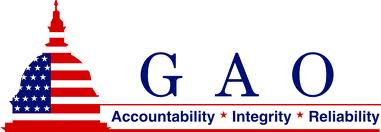
HITECH Act Requires GAO Oversight
The US Government Accountability Office (GAO) is an independent, nonpartisan agency that works for Congress and investigates how the government spends collected tax money. The agency is headed up by the Comptroller General who is appointed by the President to a 15-year from a proposed list of candidates assembled by the Congress. One of the ways the agency supports congressional oversight is by reporting on how well government programs and policies are meeting their objectives.
On July 26, 2012 the GAO published a report on Electronic Health Records, “Number and Characteristics of Providers Awarded Medicare Incentive Payments for 2011.” The report was conducted as oversight on the Health Information Technology for Economic and Clinical Health (HITECH) Act which is required by the Act to report on the impact of its provisions on adoption of EHRs by providers. The HITECH Act provided funding for the ONC and initiatives to promote EHR adoption and meaningful use of certified technology. The report focuses on the CMS EHR Incentive programs and in particular, the Medicare program. The Congressional Budget Office (CBO) has estimated the total spending for the programs from 2011 through 2019 to be $30 billion making it the largest portion of the HITECH funding. Medicare will account for more than half estimated at $17.7 billion.
The report summary claims that 761 hospitals and 56,585 eligible professionals received $2.3 billion in Medicare incentive payments for 2011. The summary also states:
- Hospitals with certain characteristics were more likely to have been awarded a Medicare EHR incentive payment for 2011. For example, acute care hospitals were more than 2 times more likely than critical access hospitals to have been awarded an incentive payment. Hospitals in the top third in terms of numbers of beds were 2.4 times more likely than hospitals in the bottom third to have been awarded an incentive payment. Further, nonprofit and for-profit hospitals were 1.1 and 1.5 times more likely than government-owned hospitals, respectively, to have been awarded an incentive payment.
- Professionals with certain characteristics were more likely to have been awarded a Medicare EHR incentive payment for 2011. For example, general practice physicians were 1.8 times more likely than specialty practice physicians to have been awarded an incentive payment. Professionals who had previously participated in CMS’s electronic prescribing program were almost 4 times more likely to have been awarded an incentive payment than those who had not participated in the electronic prescribing program, and professionals who had signed an agreement to receive technical assistance from a Regional Extension Center were more than twice as likely to have been awarded an incentive payment. Professionals in the top third in terms of 2010 Medicare Part B charges or number of 2010 Medicare Part B encounters were more than 3 times more likely to have been awarded an incentive payment compared to those in the bottom third for charges or number of encounters.
